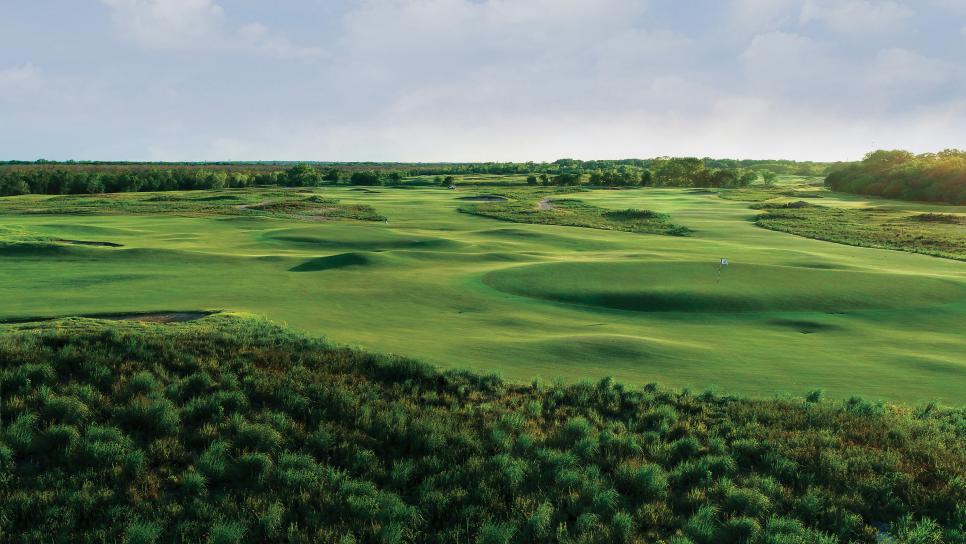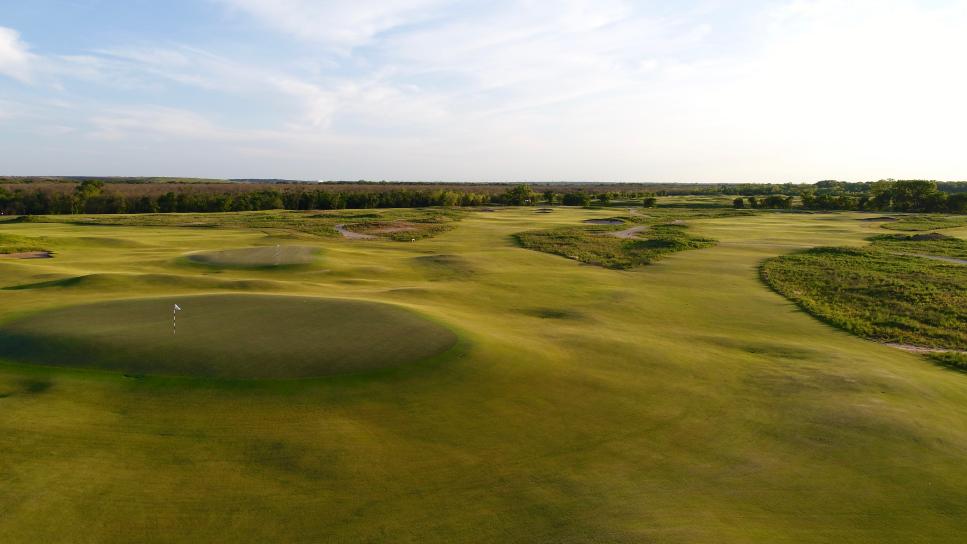News
Nine questions for Trinity Forest and new Carolina Hurricanes owner Tom Dundon

Tom Dundon, the Dallas billionaire who cofounded Trinity Forest Golf Club and is a primary investor in TopGolf, is making another major move in the sporting world. On Thursday he signed a purchase agreement to buy the Carolina Hurricanes hockey franchise.
In a statement, Dundon said, “The Hurricanes are a team on the rise, and I believe we have an opportunity to take the franchise to the next level. I'm ready to get to work." Dundon has stressed that he has no intention of moving the team from their Raleigh location. As the deal is not final, he wished to not comment further. But Dundon agreed to catch up with us as long as the conversation stayed on golf. With Trinity Forest set to host the AT&T Byron Nelson for the first time this May, there’s still plenty to talk about.
Congratulations on the Hurricanes, and on securing the right to host the AT&T Byron Nelson this May at Trinity Forest Golf Club. Wrestling a PGA Tour event away from a location it’s been since 1983—that sounds like a hard and complicated thing.
What’s most important is you start with the end in mind. From the very beginning, we built the course and facilities with the goal of hosting the Byron Nelson and ultimately, hosting a major championship. So we didn’t have to retro-fit anything. We had a group of individuals who saw the need for a new venue, the possibility to reap all the attention and excitement that comes with a change, and worked really hard to address all the various logistical challenges. It wasn’t easy, but having that plan from the start makes it easier.

Courtesy of Trinity Forest
A major championship is an ambitious goal. Have the powers at be, whether that’s the USGA or the PGA of America, intimated what you need to do to make that happen?
First, you have to have a great course. I think we have that because the architects [Bill Coore and Ben Crenshaw] had their own free will on this. Nobody told them what they had to do. Second, you need a community that will get behind a major sporting event, and Dallas has demonstrated that spirit through the hosting of Super Bowls, All-Star Games, and more. Third, as an economic entity, the city has to have a lot of the pieces and infrastructure that make it attractive. Once you have those three pieces, it's just letting the right people get the exposure to what you have and hope they agree. There are lots of great courses in great cities. But we feel pretty confident about what we have, and that it’s going to happen.
How did you end up selecting the design team of Coore and Crenshaw?
Honestly, I didn’t have a ton to do with it. There was a group of people, led by Jonas Woods, who spent more time interviewing candidates. I know there were a lot of plans they liked, but in the end it was just the right fit with the right people at the right time. Plus, the Texas roots didn’t hurt. I won’t say there aren’t a lot of great architecture firms out there, we just happened to get a real good one. The course isn’t typical. It truly looks unlike anything else you see on the PGA Tour—the lay of the land and the sorts of shots that you’re encouraged to hit—but most importantly, it’s very playable regardless of your skill level.
What’s the vibe of the membership?
Most of the people who joined didn’t do so because they needed a place to play golf. They were more interested in supporting the greater project of working with the PGA Tour, supporting the charity event, helping SMU, and then also having a special place to host guests. It’s a rare and fun experience to play a course that’s had this level of attention to detail paid to its design, and then get to recognize all those same features later when the pros play it on TV.

And there are also quite a few pros who play there regularly, correct?
Yes, there are often a lot of good players hanging around. It’s the central practice facility for the golf teams of SMU, and we have an ambassador program where we allow recent grads and other young guys trying to make it on tour to use the club. They interact with the members, fill out foursomes, and it’s fun for everybody. Then there are guys like Jordan [Spieth] and Hunter [Mahan] who are members just like everybody else. They’re both just really good guys who happen to be really good at golf.
You were an early investor in Topgolf, and remain one of the largest individual shareholders. What spurred you to get involved?
When some friends came to me looking for capital, Topgolf was a family fun center with only a handful of locations. One happened to be in Dallas close to my house, and I decided to invest in no small part because I had hopes my two sons, then 7 and 10, would get interested in golf. The combination of good food and a fun atmosphere with a little golf competition seems to draw people in. What’s key is making the game accessible. You can just show up with nothing and start playing. Other than bowling, I can’t think of another sport that offers that accessibility. I don’t think golf was that way 10 years ago.

Topgolf
TopGolf has over 30 locations now, and the projection in two years is 50. Do you have to worry about competitors?
We’re not inventors. It wouldn’t be in my DNA to worry about what other people are going to do. If you have a good business, people are going to enter that space and compete. That is capitalism defined. I know how much hard work and capital it’s taken to build this company. We feel pretty good about our position. If someone can figure out a way to grow the game and provide entertainment and it’s not called Topgolf, that’s fine. There’s plenty of room for other people to enjoy some success, too.
Looking back to the upcoming Byron Nelson, what will it take for you to consider year one a success?
Obviously, you can hope the tournament is close at the end, or there’s a certain type of winner or weather. But there’s really not a scenario where I could see myself disappointed. I’ve been most interested in the process leading up to this, working with the main sponsor, AT&T, and the Salesmanship Club of Dallas, which has run the event and the charity since the inception of the tournament. If they raise more money for charity than they did last year, then year one will be a success. And from what I understand, that’s already happened. So it’s really just a question of how much farther can we go to make this tournament even more successful.
Most important, did your TopGolf investment get your boys into golf?
Haha. They play, but only if there’s a really good reason. I never got them wanting to practice. So if Golf Digest has any ideas, you let me know.

